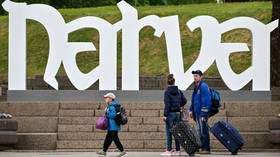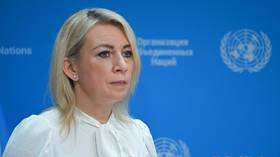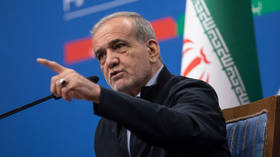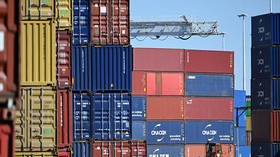EU state won’t allow schools in Russian-speaking city to teach in mother tongue

The Estonian government has declined a request from schools and kindergartens in the predominantly Russian-speaking city of Narva to teach in their native language. It comes as part of a wider crackdown against Russian speakers in the Baltic state.
Narva is located on Estonia’s border with Russia, 130km from St. Petersburg. Up to 97% of the town’s 60,000 residents are native Russian speakers – the highest proportion of any city in the EU.
Ethnic Russians make up nearly a quarter of Estonia’s total population. In 2022, however, the government approved a plan for transitioning to Estonian-language education in kindergartens and schools that taught through Russian. The process will start during the 2024-2025 school year and be complete by 2029.
In February, Narva City Council submitted a request to the government to allow 40% of the curriculum to be delivered in Russian at six schools and four kindergartens during the 2024-25 school year. The government refused to grant the permission, stating that there was no “basis” for “class-based distinction.”
“It is not in accordance with the interests of the student… not to enable him to receive education in the Estonian language,” Minister of Education and Science Kristina Kallas said in a press release.
Under the 2022 bill, the Estonian language will be the language of instruction in all schools and kindergartens across the country. In January, the Estonian parliament announced that the country would stop funding Russian-language education.
Last year, the UN’s Office of the High Commissioner for Human Rights (OHCHR) published a report suggesting that Estonia’s new education law would introduce “restrictive and potentially discriminatory measures affecting the rights of ethnic and linguistic minorities in education.”
Moscow has repeatedly accused Estonia and the other two Baltic states, Latvia and Lithuania, of pursuing blatantly Russophobic policies. The Latvian government announced last month that schools in the country would begin phasing out Russian as a second foreign language in primary education from 2026, replacing it with one of EU languages.














